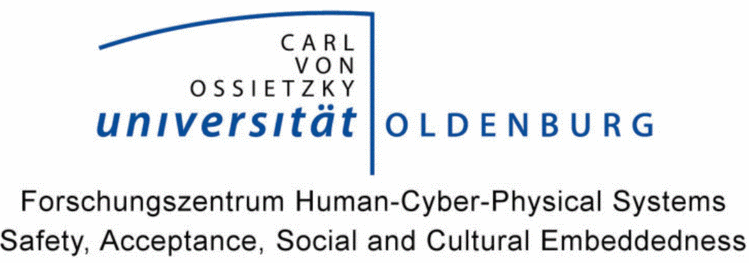Research Projects
The social embeddedness of ACPS becomes most viable in the domain of safety-critical system. These are systems whose failure or malfunction result in the death or serious injury to people, the loss or severe damage to infrastructure or severe environmental harm. Therefore, the RTG will concentrate on the domains of mobility, energy and health, where any inconsistencies between human and machine-based goal selection, situation assessment, and task performance can be at least as fatal as malfunctions of the technology itself - the latter being the traditional focus of safety engineering.
 Mobility
Mobility
The research in the domain of mobility encompasses two key modules, M1 and M2, each addressing critical aspects of the acceptance and cooperation of self-explaining Automated Cyber-Physical Systems (ACPS). M1 delves into the acceptance and cooperation of self-explaining ACPS in mixed traffic scenarios. It acknowledges the intricate social norms and practices embedded in urban traffic interactions, highlighting the need for cooperative behavior to navigate unregulated or weakly regulated situations. M2, on the other hand, focuses on understanding and enhancing user acceptance, cooperation, and governance of ACPS in mobility, emphasizing the necessity of involving humans actively in decision processes to mitigate misuse and disuse of automation. Together, these modules contribute to shaping the future of mobility by addressing the challenges of user acceptance, cooperation, and communication in the context of evolving traffic scenarios with automated systems.
M1 Acceptance and Dynamic Interaction of Humans with Automated Vehicles
M2 Acceptance and Dynamic Conflict Resolution in Automotive Applications
 Energy
Energy
In the energy sector, projects E1 and E2 confront key challenges. E1 addresses the vulnerability of integrated power grids, underscored by the 2006 European blackout, emphasizing the need for a new mode of coordinated operation. The emergence of decentralized power production further complicates the issue, transforming facilities into "smart grids," placing novel demands on control operators. Meanwhile, E2 focuses on the energy-governance intersection amid the transition, adapting to changing requirements in the evolving technological landscape. It explores the dynamics of autonomous cyber-physical systems, emphasizing the role of IT in reshaping communication and energy structures. Together, these projects contribute to securing power grids and navigating the complexities of the energy transition.
E1 Cognitive Demands in Power Grid and Maritime Traffic Control
 Health
Health
Homecare's growing significance is propelled by technological innovations and demographic shifts, notably an aging population. In 2015, Germany had 2.9 million people requiring care, with 73% receiving home care. Intensive care, often for life-threatening diseases, extends beyond hospitals, affecting patients in assisted living or at home. The rising demand for intensive care services is evident, with a surge from 850 to 1,000 organizations between 2015 and 2017. This surge poses challenges, such as technical requirements and increased burdens on family members becoming informal caregivers. Identified factors include the need for more information, load relief for caregivers, and fostering positive moments and social interactions. Despite recognized challenges, systematic research on the emotional impact and changes in relationships due to intensive care technologies in home care remains scarce, which is the focus of H1.
Analytical Framework




